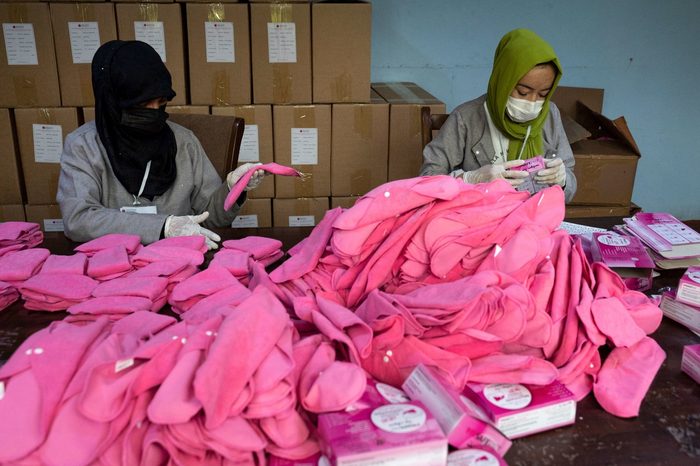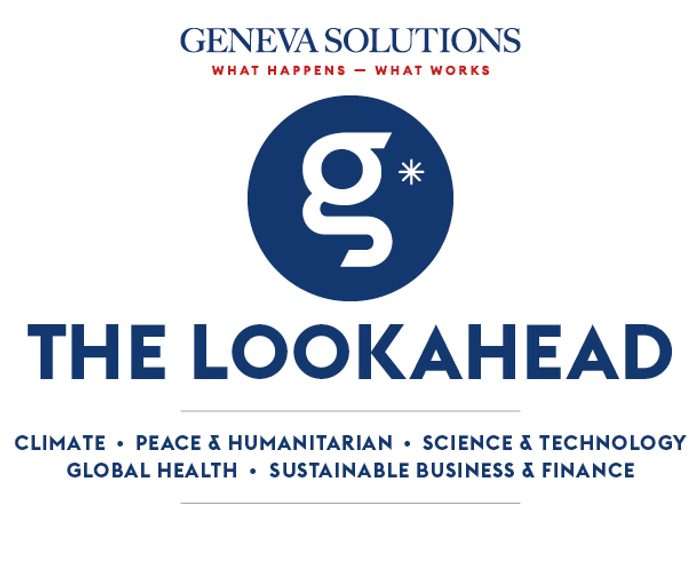Hello, this is Paula. Today, 800 million girls and women will be having their period, but due to lack of resources, roughly half of them will not be able to access sanitary products. Many of them will choose not to go to school or work as a result.
In Davos, civil society groups, United Nations officials, researchers and Swiss government representatives met to find financial solutions to respond to what they see as a huge market opportunity, just as donor money runs increasingly dry. |

|

Women employed by the Safe Path Prosperity Social Enterprise sort and pack fabric sanitary pads in a tailor workshop in Kabul on July 31, 2023. (Keystone/AFP/Wakil Kohsar)
|
|
On any given day, it is part of the lives of roughly 800 million women globally. But roughly half of menstruating women and girls lack basic sanitary products, keeping many of them away from school benches and work opportunities, and ultimately stifling economic potential and development. NGOs and authorities say it is time that investors take note.
According to the Reproductive Health Supplies Coalition, some 38 to 61 per cent of women and girls in low and lower-middle income countries globally do not use menstrual products that are purpose-made. When these become inaccessible, women and girls may use anything else, including scraps of fabric, newspaper, corn husks and even cow dung – which may expose them to infection and organ damage – or even use nothing at all.
At roughly $20, the annual cost of menstrual hygiene products in many developing countries is out of reach for people struggling to get by amid rising inflations and income levels often hovering around extreme poverty levels.
Conversely, it is estimated that India’s economy could be boosted by 2.6 per cent if period poverty is addressed.
On the sidelines of the World Economic Forum’s annual meeting last week, talks hosted by Switzerland on how to respond to period poverty came just weeks before a UN office launches a plan to source funding that goes beyond a typical grant-in grant-out development approach.
Read the full story on Geneva Solutions (EN)
|
|
Here’s what else is happening
|
|
GS news is a new media project covering the world of international cooperation and development. Don’t hesitate to forward our newsletter!
Have a good day!
|

|
|
Avenue du Bouchet 2
1209 Genève
Suisse
|
|
|
|








